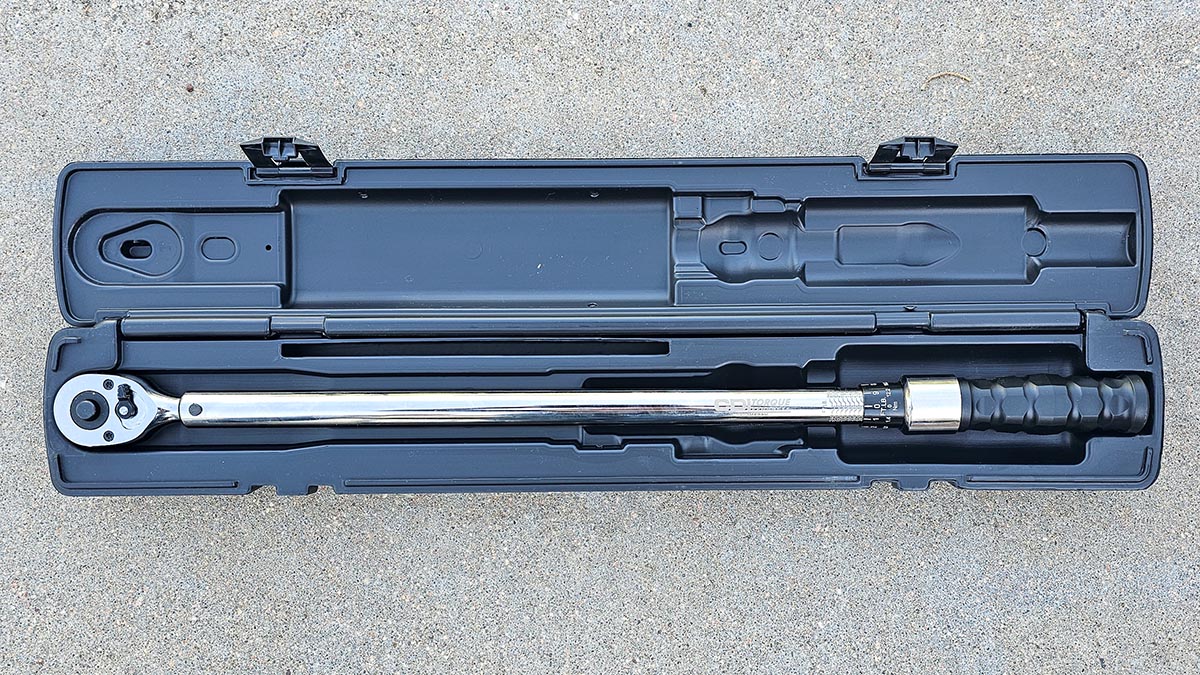We may earn revenue from the products available on this page and participate in affiliate programs. Learn More ›
Torque wrenches are common tools in mechanic shops. This is for good reason: they allow the mechanic to tighten nuts and fasteners to precise specifications, which is critical for maintenance and safety. I tried out several torque wrenches as part of a comprehensive hands-on test to determine some of today’s best torque wrenches, and one model from CDI took top honors.
The CDI 2503MFRPH is a click-style torque wrench with a ½-inch drive. It’s adjustable from 30 to 250 foot-pounds, making it suitable for torquing a range of fasteners, from lug nuts to mechanical components on farm and construction equipment. I tested it out on car tires, a skid steer, and a tractor. Ahead, find out what I liked and what I think could be improved.
CDI 2503MFRPH Torque Wrench: At a Glance
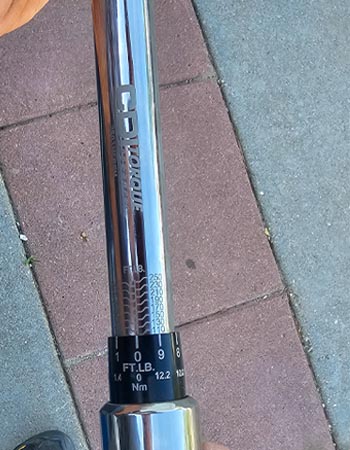
Rating: 4.5/5
Specs
- Type: Micrometer
- Accuracy: ±4 percent clockwise, ±6 percent counterclockwise
- Drive size: ½ inch
- Foot-pounds: 30 to 250
What We Like
- Measures torque in both imperial and metric units
- Precalibrated to accuracy level of ±4 percent clockwise and ±6 percent counterclockwise, verified by the National Institute of Standards and Technology (NIST)
- Quick-release button for easy socket changes
- Padded, nonslip comfort grip for ease of use
- Well suited to automotive, industrial, and machinery applications
What We Don’t Like
- Grip may be on the small side for users with large hands
- At just over 2 feet long, the tool can be cumbersome in confined spaces
Get the CDI torque wrench at Amazon for $187.99.
What is the CDI 2503MFRPH torque wrench?
This CDI torque wrench measures torque in imperial units (30 to 250 foot-pounds) and metric units (47 to 332 Newton meters). It features an easy-to-adjust collar for selecting the desired torque. However, I found myself wishing it had stamped measurements rather than laser-etched engravings, as the latter can be hard to see if they get greasy or if the lighting is poor.
It measures 24.4 inches long, with a head that is 1.7 inches wide and 1.4 inches deep. It weighs 3.2 pounds and has a padded comfort grip, although I found the grip slightly small. Someone with larger hands might prefer to use a torque wrench with a bigger grip.
The ½-inch drive torque wrench has a quick-release button for changing sockets quickly, and it comes in a hard storage case to safely store the tool. The only downside is that the case is slightly short. When torque wrenches are not in use, manufacturers typically recommend releasing the tension, but when I fully loosened the tension, the tool was a hair too long to comfortably fit in the case. I had to tighten it a turn or two so that it would fit. This wasn’t a big deal, but I would have preferred the case to be long enough to store the tool without any tension on the innerspring.
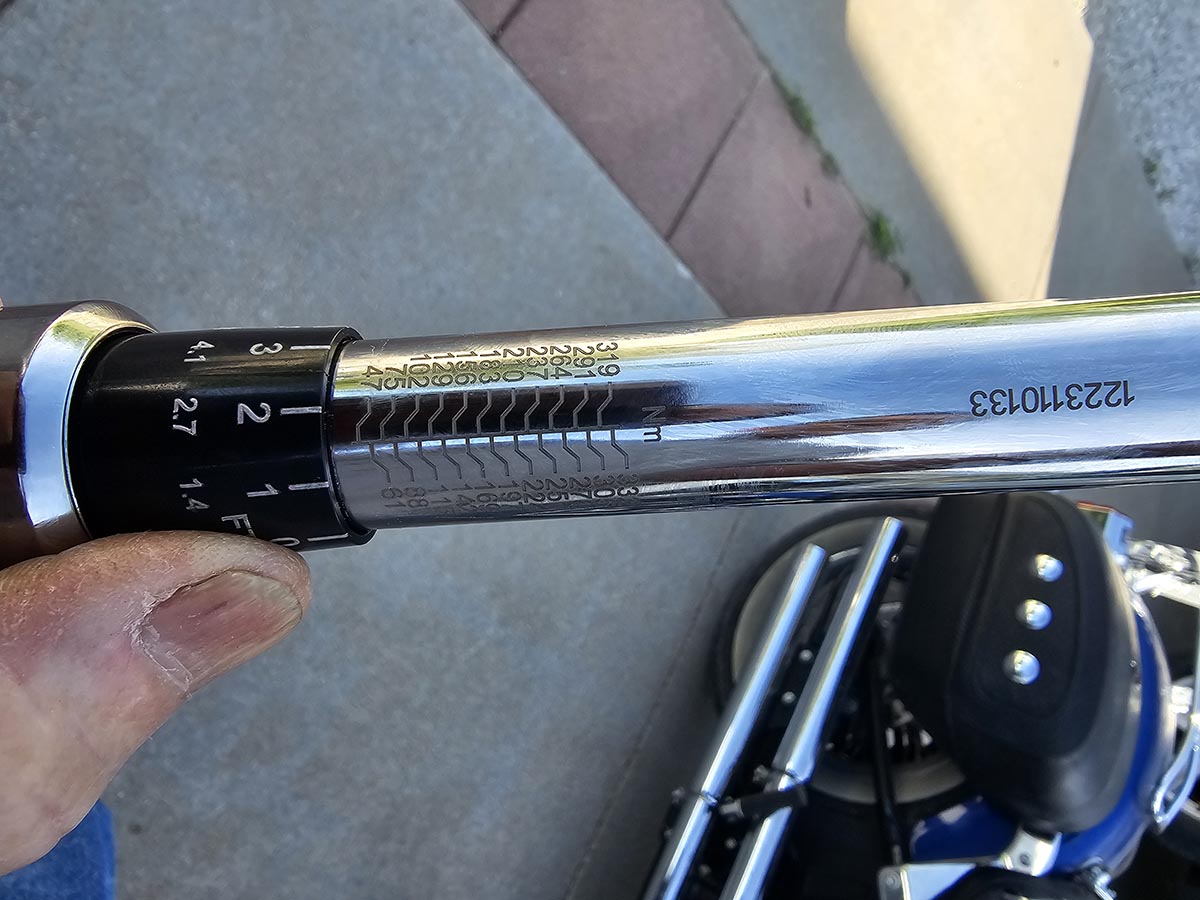
Accuracy
The CDI comes precalibrated with an accuracy of ±4 percent clockwise (CW) and ±6 percent counterclockwise (CCW). I did a simple comparative test for accuracy by setting the CDI and another torque wrench, the DeWalt DWMT17060, to 100 foot-pounds and then using them on the same fastener to see if there were any notable discrepancies. There weren’t any disparities, although it wasn’t an apples-to-apples comparison because the DeWalt is a digital torque wrench. Still, both torque wrenches registered the same tension on the fastener. On top of that, the CDI comes with a certificate of calibration backed by the NIST.
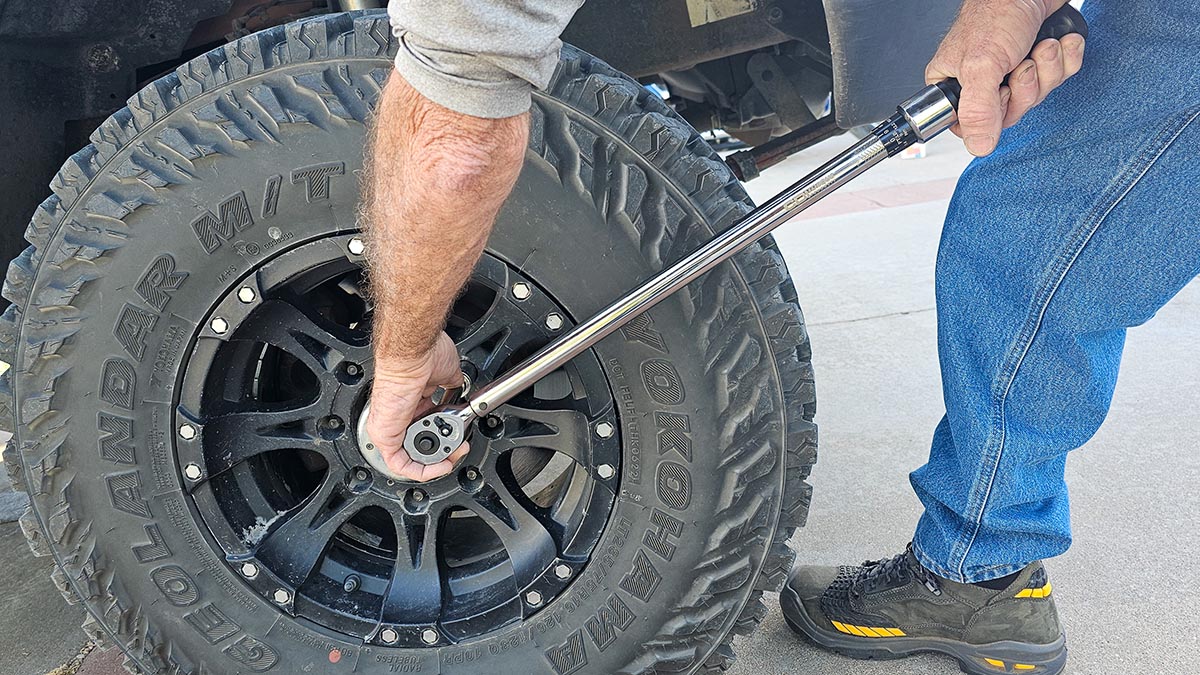
Drive Size, Range, and Usability
The CDI’s ½-inch drive and 30- to 250-foot-pound range make it versatile for medium-to heavy-duty fastening applications. Its 2-foot length offers plenty of leverage for tightening high-torque nuts. Still, it also makes the tool a little clumsy if you’re using it for lower-torque applications, such as tightening nuts on, say, a lawn mower or motorcycle.
The CDI torque wrench was just right for tightening the lugs on my car, but it was too cumbersome (and didn’t adjust low enough) to tighten several nuts on my husband’s Harley. My husband assisted when testing the CDI on higher-torque fasteners on our skid steer and tractor because those fasteners require more physical strength to tighten.
This is a handy torque wrench for many auto and machinery applications. Its ½-inch drive handles large ½-inch sockets, but you’ll need to attach a reducer to use it on smaller sockets. If you’ll be working with smaller, lower-torque fasteners, you may find it simpler to use a smaller option, such as the Capri Tools 31200 torque wrench.
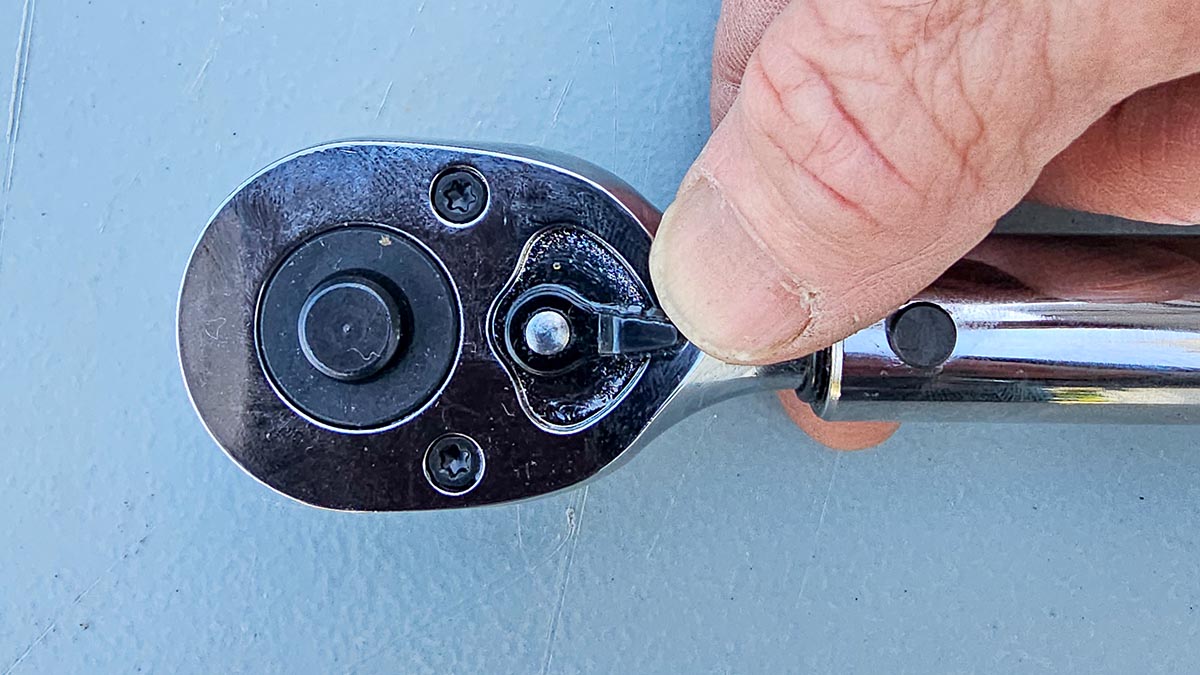
Is the CDI 2503MFRPH right for you?
Thanks to its versatile foot-pound range, this heavy-duty torque wrench serves as a reliable mechanic’s tool. Serious DIYers who regularly work with medium-to-heavy-duty fasteners will also like it. Its dual measurement scale (imperial and metric) makes it well suited for a variety of projects, such as automotive repair, industrial maintenance, and farm use.
Many users will find that its lengthy design helps generate enough leverage and force to tighten high-torque fasteners. However, the CDI might not be the best pick for everyone. Folks with large hands might find the grip on this torque wrench too small to get a firm grip, and if you regularly work on small engines, such as mowers or string trimmers, a smaller torque wrench might be more feasible.
Where to Buy the CDI 2503MFRPH Torque Wrench
Get the CDI 2504MFRPH torque wrench at Amazon for $187.99.
Meet the Tester
Glenda Taylor is a product tester and writer specializing in the construction, remodeling, and real estate industries. She and her husband own a general contracting company, and Taylor is experienced in both residential and commercial building applications. She tests a wide range of power tools as well as other home improvement, household, and lawn-and-garden products.

